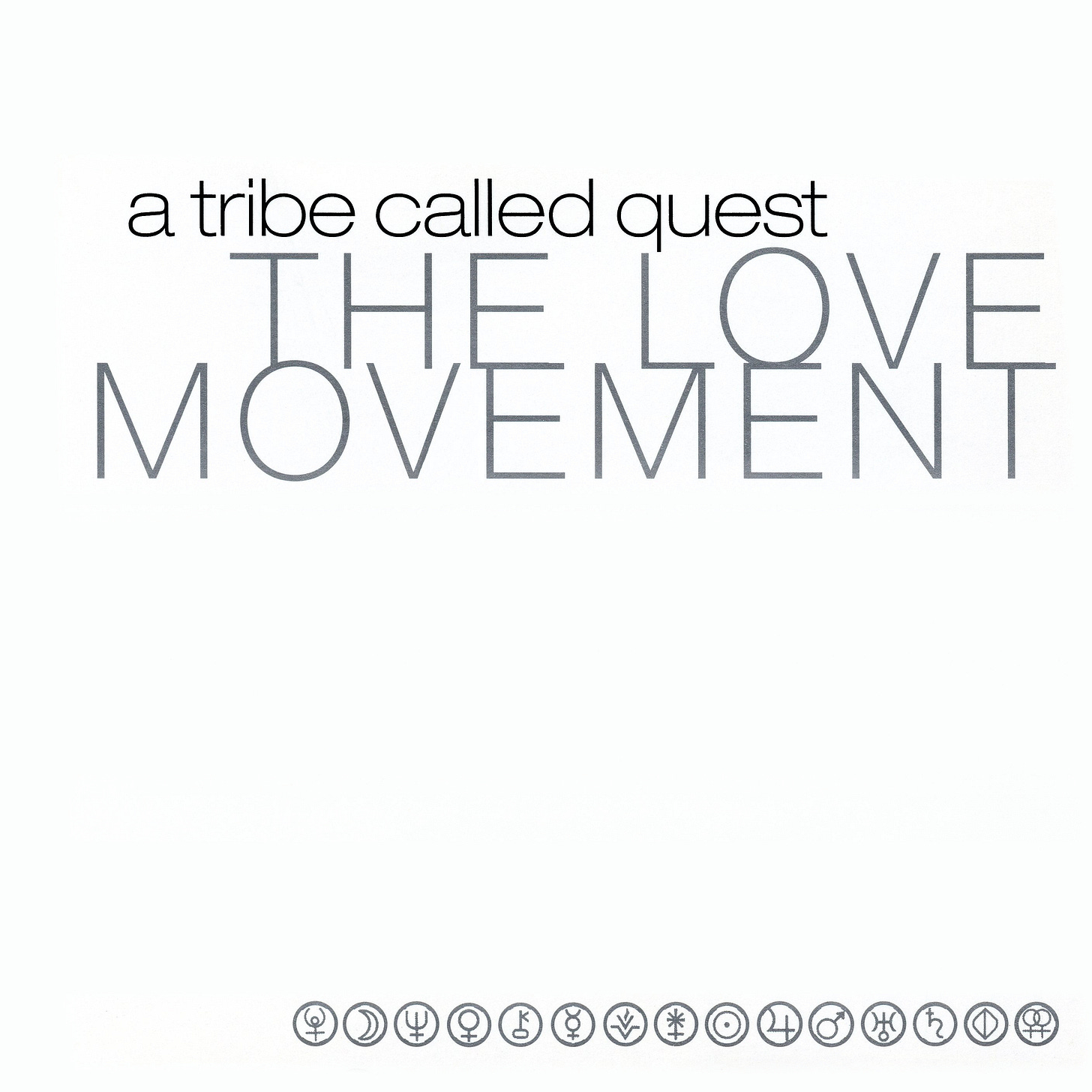Retrospective Review: The Love Movement by A Tribe Called Quest
A Tribe Called Quest’s last album before their return in 2016.
A Tribe Called Quest emerged as a defining force in hip-hop, crafting a sound that blended classic jazz elements with contemporary urban rhythms—comprising New York natives Jonathan “Q-Tip” Davis, Malik “Phife Dawg” Taylor, Ali Shaheed Muhammad, and Jarobi White, the collective released three albums between 1990 and 1993 that set new benchmarks for the genre. However, personal and professional transformations marked the period between their third album, Midnight Marauders, and their fifth, The Love Movement. These shifts altered the group’s trajectory and influenced the sonic and thematic elements of their fourth and fifth albums.
One of the most significant changes during this transformative period was the formation of “The Ummah,” a production unit consisting of Q-Tip, Ali Shaheed Muhammad, and James “Jay Dee” Yancey. Borrowing its name from the Arabic term for “community,” The Ummah expanded its creative reach beyond A Tribe Called Quest, offering production services to artists like Janet Jackson, Whitney Houston, and Jon B. This redistribution of creative energy sent ripples through the group’s internal dynamics, leading to indisputable tension that left its mark on their fourth album, Beats, Rhymes and Life.
When it came to The Love Movement, The Ummah’s influence was equally pervasive. Their production style, a blend of organic and synthetic elements, contributed to the album’s unique sonic landscape. This was a departure from the jazz-infused arrangements of earlier albums, introducing a tighter, occasionally electronic vibe. The Ummah’s role in shaping the sound of The Love Movement was not merely an extension of their previous work but a distinct chapter in the group’s evolving narrative.
The group opted for a sonic palette that diverged from the darker tones of their previous work, Beats, Rhymes and Life. The album imbues a lighter atmosphere, yet it doesn’t sacrifice depth or thoughtfulness. “The Love” and “Find a Way” are imbued with a celebratory and romantic spirit, respectively, while songs like “Start It Up” and “Pad & Pen” exude playful bravado.
The Ummah imbues the album with a modern pulse that neither overshadows nor underplays the lyrical content. Take, for instance, the track “Like it Like That.” The song employs warm, inviting synths that harmonize with a guitar loop, subtly manipulated through electronic filters. This delicate balance retains the instrument’s natural essence while adding a contemporary flair.
Another noteworthy track is “4 Moms,” an instrumental piece spotlighting jazz guitarist Chalmers “Spanky” Alford. The song unfolds over a laid-back, electro-urban groove, demonstrating the album’s meticulous approach to blending organic and synthetic elements. This careful orchestration lends The Love Movement a compelling presence, making it a fitting companion to its predecessor, ‘Beats, Rhymes and Life.’
The lyrical interplay between Q-Tip and Phife Dawg remains a cornerstone of the album’s appeal. Q-Tip’s smooth, hypnotic delivery contrasts beautifully with Phife Dawg’s rougher, yet equally magnetic, vocal style. This duality is particularly evident in tracks like “Da Booty,” where the two emcees’ lines run parallel or intersect in a jovial verbal duel.
The album features a roster of guest artists, adding layers to its sonic architecture. Notable collaborators include Busta Rhymes, Redman, Noreaga, and Mos Def. While these guest appearances could risk overshadowing the core duo, they instead serve to enrich the album’s texture.
For instance, the track “Rock Rock Y’all” might seem crowded at first glance, but it showcases the versatility of A Tribe Called Quest. The guest artists don’t dilute the album’s essence; rather, they amplify its reach. This aligns with one of hip-hop’s foundational tenets: collaboration. Yet, it’s crucial to note that the album could stand on its merit even without these additional voices, thanks to the undeniable chemistry between Q-Tip and Phife Dawg.
Upon its release, The Love Movement was in a complex situation. Just a month prior, A Tribe Called Quest had announced their disbandment, casting a shadow over the album’s reception. Despite this, the album managed to secure a gold certification, signifying sales of 500,000 units in the United States. However, it’s worth noting that only one commercial single, “Find a Way,” was released, leaving the album somewhat adrift regarding broader commercial impact.
The album’s legacy is equally sinuous. While it didn’t receive the universal acclaim that graced some of the group’s earlier works, it holds a unique position within their oeuvre. In the years that followed, the group would engage in solo projects, sporadic reunions, and even release a final album in 2016, following the tragic passing of Phife Dawg. Yet, The Love Movement remains a significant chapter in their story, capturing a group at the crossroads of artistic evolution and personal discord.


